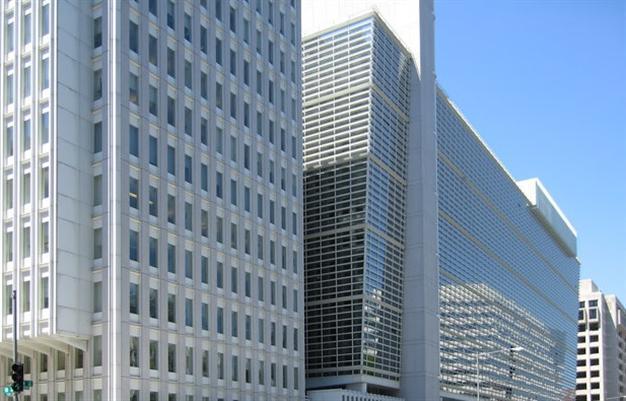World Bank revises Turkey’s GDP growth forecast up on high 2nd quarter data, warns of deceleration in second half
ANKARA
 Despite the expected slowdown in the second half of the year, the faster GDP growth in the second quarter has lead to revising growth forecasts to 3.2 percent for 2015, according to the World Bank’s “Turkey Regular Economic Brief for October,” issued Oct. 13 in Ankara.
Despite the expected slowdown in the second half of the year, the faster GDP growth in the second quarter has lead to revising growth forecasts to 3.2 percent for 2015, according to the World Bank’s “Turkey Regular Economic Brief for October,” issued Oct. 13 in Ankara. “Seasonally adjusted GDP grew by 1.3 percent in the second quarter. Private and public consumption continued to lose momentum as expected but private investment unexpectedly surged and became the main driver of growth, an indication that the private sector front-loaded investment spending before the June election or realized previously postponed investment, anticipating elimination of uncertainties after the election,” said the brief.
The brief noted that the hoped-for external adjustment fueled by a weaker Turkish Lira and significantly lower oil prices has not materialized.
“Despite a significantly lower energy deficit, Turkey’s current account deficit widened to $45 billion in the 12 months through July 2015 (gold adjusted), compared to $42.6 billion in 2014. The deterioration in the deficit is mainly due to weaknesses in trading partners, particularly slow growth in the EU, difficulties in MENA [Middle East and North Africa region] and Russia, and a fall in tourism revenues over the summer of 2015,” the note read.
Domestic political concerns and global financial market jitters dried up short-term inflows, according to the World Bank. Although the quality of finance improved thanks to lengthening maturity, net inflows fell short of financing the current account deficit in the first seven months of the year, it added.
The brief indicated that inflation is likely to remain above target in 2015, around 7.5 percent.
“Food prices started to rise rapidly again, pushing food inflation momentum up to 14.7 percent in September.
Renewed currency depreciation brought core inflation above 8 percent and its momentum above 10.5 percent. Particularly, a sharp increase in automobile prices due to depreciation added significantly to inflation in September. As a result, 12-month inflation climbed to 7.9 percent in September,” it said.
Economic activity expected to slow down
According to the brief, economic activity is expected to decelerate in the second half of 2015.
“Credit growth momentum fell below the Central Bank’s reference rate of 15 percent by mid-September. In addition, continuing political uncertainty and tensions in Turkey’s southeast make it difficult for the private sector to sustain the investment spending witnessed in the second quarter. Businesses are likely to cut investment spending from the second quarter and postpone investment decisions until a new stable political equilibrium is reached. External adjustment should continue, as lower oil prices will likely bring the current account deficit down by another $5 billion in the remainder of the year,” said the bank.
The brief said that Turkey’s current account deficit remains high and is unlikely to fall below 5.5 percent without significant structural reforms, given the current external environment.
“There is an urgent need for political stability and a return to implementing the structural reform agenda to restore investor confidence, address vulnerabilities and lift growth” said the brief.
















